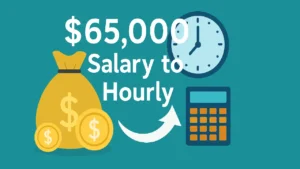
Are you looking for in-depth story of east palestine news? This is a detailed article on it. Recent Norfolk Southern train derailment in East Palestine released hazardous materials, sparking environmental and health concerns nationwide.
As investigations continue, the history of East Palestine puts a spotlight on systematic flaws in the rail business that the unions and laborers have been alerting women and men about for many years. The East Palestine news is not just a local crisis, but it is also a wake-up call.
On Tuesday, February 3, 2023, in the town of East Palestine, Ohio, a Norfolk Southern Railway train (32N) with 20 cars that carried hazardous materials derailed. There were 38 cars involved in the crash (11 of the cars transported dangerous materials), and 12 other cars were on fire.
The eco-tragedy that occurred due to the derailment:
- Applied a toxic chemicals controlled burn.
- It was issuing the compulsory evacuation orders on those days.
The left-behind site had the dwellers on the left pondering over their air quality, and irrespective of whether they were safe in their water.
It has also made several inhabitants have concerns about the future of their town. A citizen, Jessica Conard, said during a town hall meeting on February 22, I do not feel safe because I do not know what will happen in my town in the future.
This could kill a town like ours. This would be a terrible ending, but it would be all the more terrible in this case because the derailment is preventable.
How did the Accident happen?
The NTSB found that a defective wheel bearing caused the accident shortly before the derailment. During a February 23 press conference, NTSB Chair Jennifer Homendy revealed that the hot axle and plastic pellets caused the fire.
According to the NTSB report, a warning audible signal from the wayside defect device drew the crew’s attention to halt the train and inspect a hot axle. The axle broke, causing an emergency full brake to be applied, which resulted in the cars being jackknifed and derailing.
Homendy pointed out that there was nothing wrong on the part of the crew. The investigation conducted by NTSB remains active and can take years to complete. Although this can be the official reason as established by the NTSB, a series of decisions led to the mechanical failure.
A Wreck Brought about by a Long Time
The East Palestine news accident did not surprise railway workers and unions. As the Railroad Workers United (RWU) expressed it, the crash of Train 32N is years in the making.
The derailment can be traced to decades of cost-cutting measures, layoffs of construction workers, fighting regulations, and corporate lobbies by the rail companies.
The Service Transportation Board Hearings April 2022
In April 2022, executives from four major rail companies testified about the evident risk of a catastrophe during public hearings called by the Service Transportation Board, as reported by The Independent.
At the end of those hearings, the companies were directed to report on what they would do to overcome the shortcomings detected in the hearings.
Although every one of the companies provided the bare minimum responses, Norfolk Southern mostly ignored portions of that order, the authors write.
History of Protest of Regulations at Norfolk Southern
This is not the first time the carrier has jumped at stricter rules.
Norfolk Southern also had a record of campaigning against safety laws, as they have made
clear to Julia Malleck under Quartz. Malleck observes that the company:
- Continuously resisted the movement to improve braking systems.
- Opposed to pressuring to control hazardous materials.
- Laid off more than a fifth of employees since 2017.
- The Rail Workers and their unions also gave warnings.
Vox Correspondent Umair Irfan, rail workers, officials, and industry analysts warn that these disasters reflect an industry focused on cost-cutting, reducing labor, and resisting regulation. The following are the problems that are at the helm of the rail industry’s trouble.
Industry Lobby to Oppose Safety Improvement
The federal government has made efforts to enhance safety in the freight industry, triggering opposition from rail companies that aim to reduce their operational costs.
Improving braking systems is one of those improvements. President Obama established a rule in the Pipeline and Hazardous Materials Safety Administration (PHMSA) and Federal Railroad Administration (FRA) to require trains carrying hazardous materials to install electronically controlled pneumatic brakes (ECPs) by 2023 in 2015.
According to USA Today reporter Tami Abdollah such systems “apply brakes simultaneous to a train, instead of railcar by railcar over a few seconds.” This implies cars will not collide and get jackknifed and derailed.
According to Abdollah, the rule applied to some of the so-called high-hazard flammable trains that had a minimum of 20 successive loaded cars. This would, according to the FRA, enhance the safety as well as the braking of the trains.
It was, however, revoked in 2018 by the Trump administration, well before the 2023 deadline, after companies had lobbied strongly against it on cost grounds.
The PHMSA then decided, based on the decision, “the revised RIA determined that the anticipated cost of the ECP brakes is far more than the anticipated benefits.”
However, those cost-avoidance acts endanger the lives of crews and citizens. ECP brakes would have prevented that monster pile-up behind the car that was derailed, reckons Steven Ditmeyer, a former high-ranking official in the Federal Railroad Administration.

Long Trains, Less Staff
Attempting to reduce cost, carriers have been embracing the philosophy of doing more with less and hence have introduced Precision Scheduled Railroading (PSR).
Michael Baudendistel, head of intermodal solutions at FreightWaves, described PSR as typically involving the removal of classification yards, the consolidation of dispatch centers, a significant reduction in labor, and cuts to capital budgets. These changes lead to vastly improved margins and returns on invested capital through increased asset utilization.
According to Alex Press, a Jacobin staff writer, the direct outcome of PSR is the following: more train cars, heavier loads, and fewer workers.
A report prepared in 2019 by the Government Accountability Office (GAO) indicated an increase in train length by 25 percent (from 2008 to 2019) and that some have up to three miles in length. Meanwhile, GAO observes that staffing has reduced by close to 30 percent.
All this means less secure operations of trains with staffing reductions, long shift assignments, unpaid breaks, and sick leaves.
Deeper cuts in the staffing will result in less Human resources available to scan the train and spot the myriad of potential flaws and errors that may cause a train to derail in a mammoth collision, Press writes.
That is profits instead of people, according to Kenny Edwards, state legislative director of the International Association of Sheet Metal, Air, Rail and Transportation Workers (SMART) Transportation Division.
Such cut-backs and changes they are introducing mean that disasters such as East Palestine will only become more common. Also, read our article on Gaza News Al Jazeera.
Conclusion: East Palestine News
The East Palestine news points to an alarming fact: the rollback of regulations and profit-making decisions has endangered the lives of thousands of communities.
The derailment did not come out of the blue–it was the culmination of years of unheeded warnings, cut safety standards, and corporate arrogance that resisted anything that smacked of change.
With the East Palestine news moving forward, it should be clear that railway safety reforms are no longer optional; they are urgent.
Whether it is the disgruntled people who are shouting to have clean water and air to breathe or the representatives of the unions who are screaming, they must have railroad work to be carried out more safely, the East Palestine news has become a call to action to show the responsibility and reaction following this massive rail accident.
Future disasters would be inevitable unless there is a listening ear among the regulatory agencies, lawmakers, and rail companies.
The East Palestine news will be best not only because of the harm it creates but rather because it is opening an opportunity to create a safer future for everyone.








